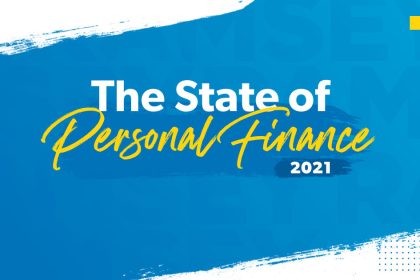Credit Sesame with tips on how to master budgeting as part of your personal finance journey.
The principles of budgeting are the same whether you are a child saving for a new toy or an adult saving for a new house. Learning how to budget effectively can help get you on track to achieve your financial goals.
1. Prioritize high-interest debt
There is little point in setting money aside for saving if you are paying interest charges on other debts. Before funneling money into savings, focus on reducing high-interest debts. Allocate extra funds to eradicate these financial burdens and save on interest payments. As soon as the debt is paid off, start saving those funds instead.
2. Understand your income
For most employed people you know exactly how much income you receive every week. For gig workers and freelancers, estimating income can be tricky. Be conservative in your estimates and track your earnings diligently to align with financial goals. Do not rely on credit cards to fund spending in excess of your income.
3. Embrace weekly allowances
Allocate a fixed weekly spending allowance for all expenses, including non-essential expenses. Once you deplete your non-essential funs, exercise discipline until the next week begins.
4. Track receipts digitally
Utilize apps for real-time expense tracking to gain insights into your spending patterns and make informed financial decisions. Check if your online banking App has this functionality. If not, there are other Apps that provide real-time insights into your finances.
5. Meal planning and smart shopping
Plan meals ahead to curb unnecessary dining expenses. Leverage online tools and discounts to optimize grocery shopping. If you prepare food at home instead of ordering your usual takeout, give yourself an extra $5 in your non-essential allowance. Cook twice as much food and freeze half for another day.
6. Budget for the occasional splurge
A balanced budget allows for occasional treats from your non-essential allowance. Learn to enjoy planned splurges you know you can afford rather than impulse spending that leaves you short.
7. Use technology for price-tracking
If you need to make a purchase, be sure to compare prices at different outlets. Leverage price-tracking apps and websites to find the best deals. Harness the power of technology to make informed purchasing decisions.
8. Set clear financial goals
It can be easier to budget if you define specific financial goals, such as paying off debts or saving for a home. Clarity in your objectives enhances your commitment to achieving them. Look forward to the satisfaction of making your purchase when you can afford it.
9. Review tax withholding regularly
Ensure your tax withholding aligns with your financial situation. Adjust it promptly for significant life changes to prevent surprises during tax season. There’s nothing worse than completing your return and finding you have a big tax bill.
10. Build an emergency fund
This may seem like an impossible task when you first start budgeting. But when you have any debt under control, aim to build an emergency fund covering at least six months of living expenses. This financial cushion safeguards against unforeseen circumstances.
11. Cut costly habits
Identify and cut down on expensive habits. Cancel that gym membership if you don’t know the last time you went, and redirect those funds toward healthier lifestyle choices or savings. The financial benefits of quitting smoking or moderating alcohol consumption can be substantial.
12. Overestimate necessary expenses
When budgeting for essentials, overestimate by 10% to create a buffer. This safeguards against unexpected price hikes or emergencies. If you find you have funds left over after purchasing everything you need, pay down some debt, add to your savings and give yourself a little extra in your non-essential allowance.
13. Involve the Entire Family
Foster a budget-conscious environment by involving the whole family. Collaborate on expenses, and teach children about financial responsibility. Decide together what the family can splurge on.
14. Explore budgeting apps
Leverage modern finance apps from your bank or other financial institution for seamless budget management. Stay on top of your finances with real-time updates.
15. Monitor your credit
Implementing a robust budget can positively impact your credit. Controlled spending, timely payments, and debt reduction demonstrate good financial management and can lead to a healthier credit score. Be sure to review your credit reports regularly for accuracy and address any discrepancies.
16. Automate payments and savings
Set up autopay to ensure your credit cards and utilities get paid on time. Create an autotransfer to your savings account. Ensure this aligns with your overall financial strategy, especially if high-interest debts exist.
17. Embrace side hustles
Explore side hustles for additional income streams. Digital platforms offer various opportunities to supplement your earnings. What are you good at? Can you sell it?
18. Stay informed about financial trends
Regularly update yourself on financial trends and economic shifts. Being informed enhances your ability to make proactive financial decisions. How should the state of the economy and inflation impact your budgeting plans?
19. Green and sustainable choices
Opt for sustainable living choices, saving both the environment and your budget. Embracing eco-friendly practices often leads to cost savings. Learn about green living to make budgeting more fun and have an additional purpose. Energy-efficient appliances save on electricity costs. Reusable shopping bags save on disposable alternatives.
20. Assess and adjust often
Regularly assess and adjust your budget as life changes, ensuring flexibility for evolving financial plans. Flexibility ensures your budget remains effective over time. This does not mean you should change it just because you want to spend more on eating out this month.
Mastering budgeting is a continuous process that will change as you reach milestones, pay off debts, and increase (or decrease) your income. By incorporating these tips into your financial routine, you can stay on budget and pave the way for a more secure and prosperous future.
If you enjoyed 20 tips to help you master budgeting you may like,
Disclaimer: The article and information provided here are for informational purposes only and are not intended as a substitute for professional advice.
Read the full article here

















